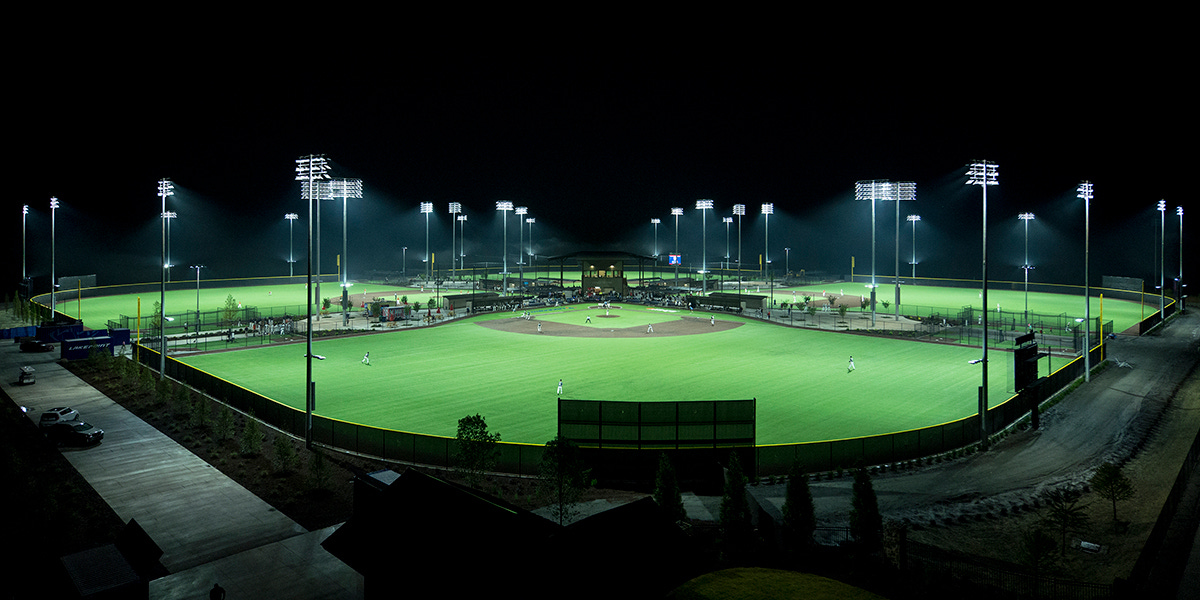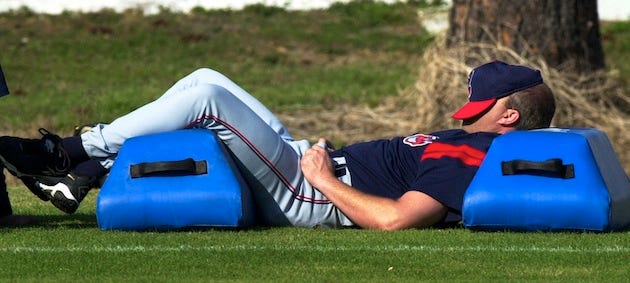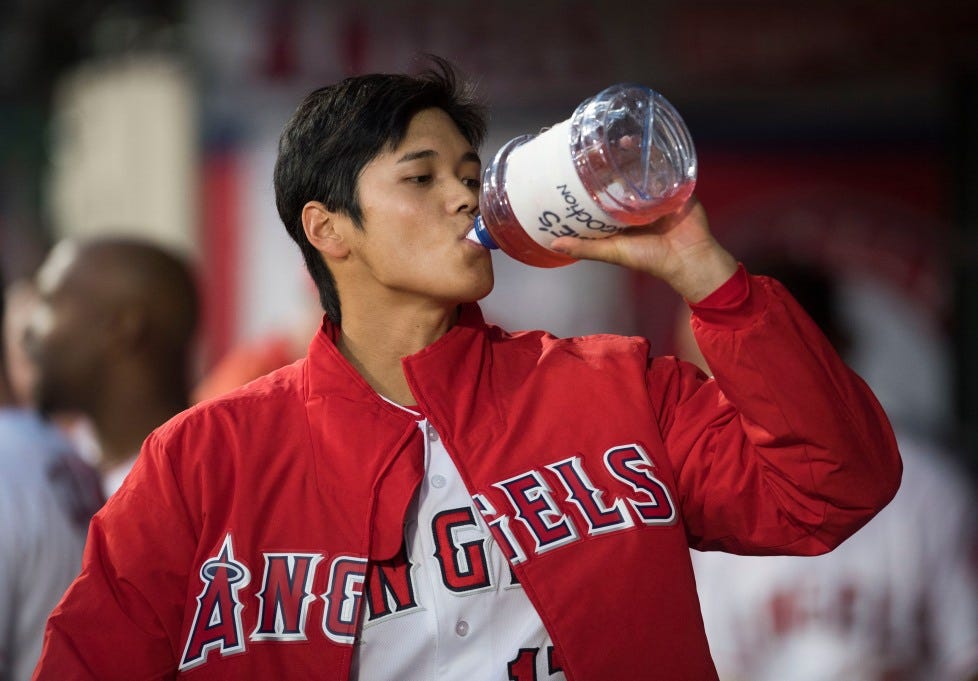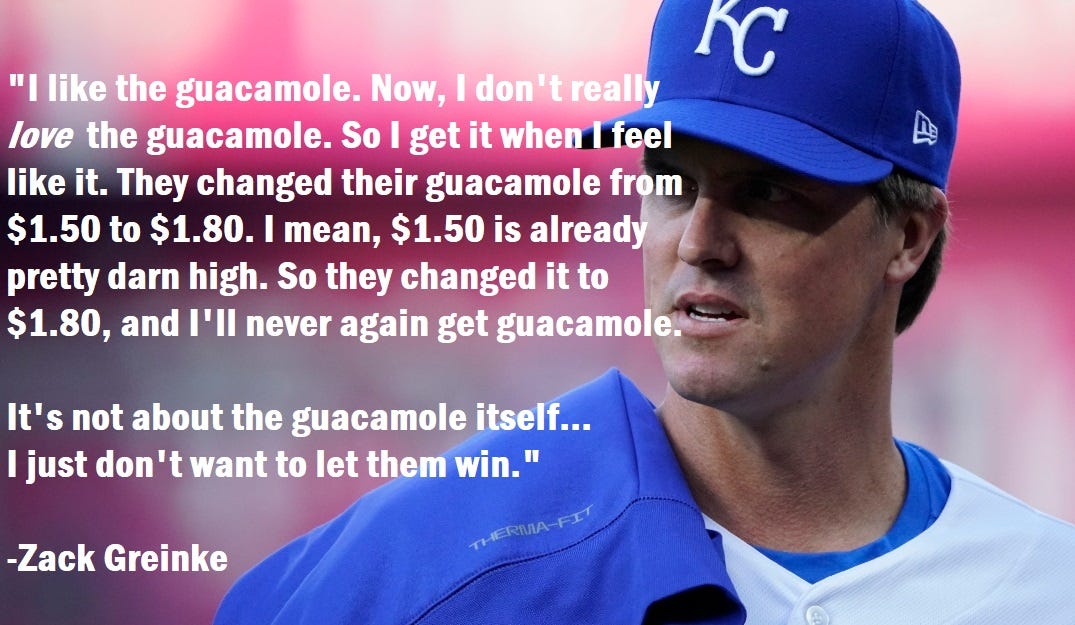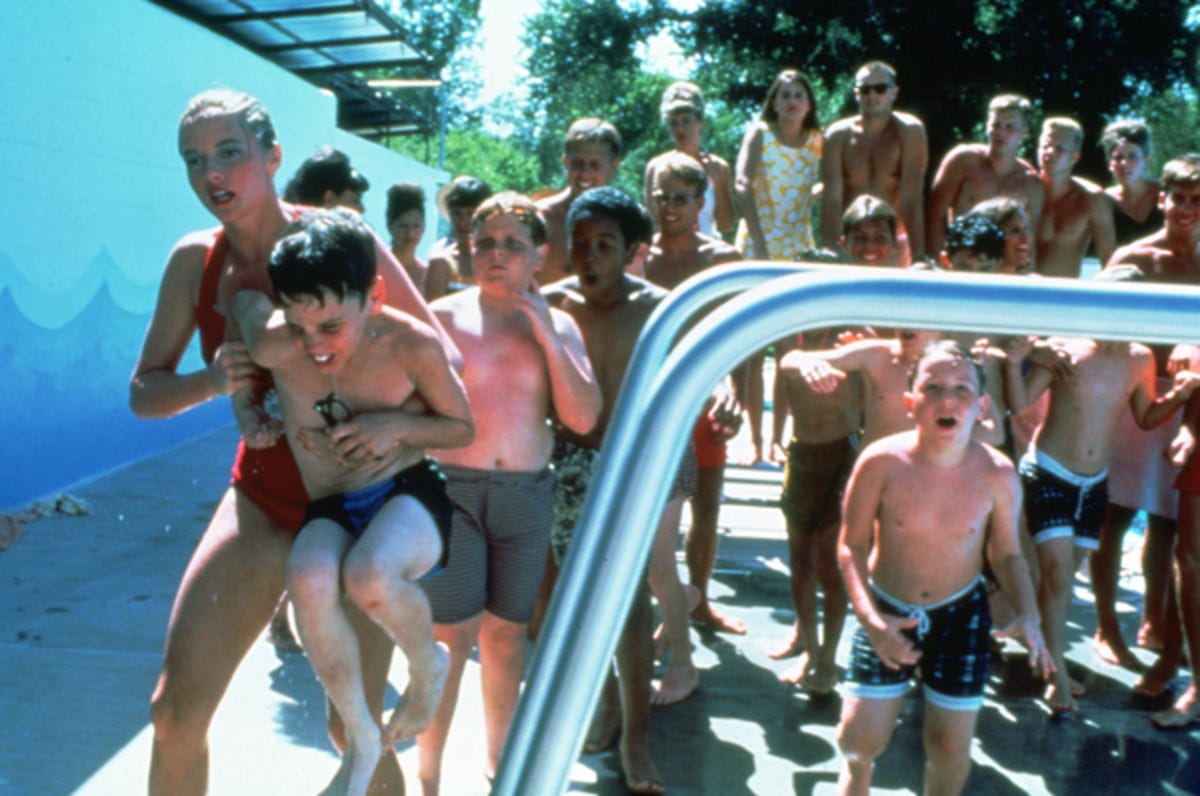5 Tips for Sustaining Performance During the Summer
Planes, hotels, hot weather, late nights, fast food, etc.
There is a culture around travel sports in the summertime. Whether you’re a baseball parent or a soccer parent or a basketball parent or whatever it may be, your kid is going to:
Travel
Stay in hotels (and stay up until the wee hours with teammates)
Play in hot weather
Play at inexcusably late (or early) hours
Default to fast food in a pinch
TRUE: All of the above contribute to your athlete’s body getting beat up over the course of the summer months and that affects performance on field.
FALSE: “He’s a kid, he shouldn’t get tired, his body doesn’t ache like mine when I get out of bed.”
Now, we don’t expect a 15-year-old kid to dial into EVERYTHING we’re about to lay out here, but small changes go a long way towards mitigating the effects of a summer on the road. Don’t just submit to the culture and follow the herd.
Here are 5 tips that, even in moderation, can move the needle towards a healthier athlete and a better performer on field (some of these are very easy).
1. Sleep
This is probably the lowest hanging fruit and the hardest to enforce. Encouragement is probably your best bet here as a parent or coach. Sleep has a laundry list of benefits to a growing teenager: from recovery to healing to growing to skill acquisition.
Seriously, 8 hours of sleep is king, 10 is outstanding, and 6 is better than 5 if necessary.
Naps… NAPS. Naps are great.
Flight delays, weather delays, etc. fit in your winks whenever you can.
TRUE: Hotel beds are hard to adjust to. Changing time zones affects sleep. A hotel room with 3 boys will likely keep each other up making memories they’ll cherish for the rest of their lives.
Okay, some tips would be nice…
NO ENERGY DRINKS. Or caffeine in general. Stay away from it, there are no benefits for a growing athlete, no if ands or buts. Any dosage of caffeine after 1pm is a GUARANTEE to disrupt sleep. This one is black and white. Energy drinks, bad. Really bad.
Allow your athlete to take advantage of their bed at home. After 5 days on the road, let them sleep their days away in their own bed. It’s the trade-off to the travel, they deal with 6am wake-ups enough during the school year. ENCOURAGE SLEEP.
Hotel room thermostat should be set to less than 70 degrees (65-68 degrees is ideal). This should be the first thing that is adjusted when checking into a new hotel.
Try to keep on a regular eating schedule as best you can. A meal at 11pm is going to delay or impact sleep. If you’re in that 9pm game slot, eat before and maybe something light post-game, but fast food at 11pm is never the answer (more on that later).
2. Hydration
Drink water. Remember when we said 8 hours of sleep is king? Well, there’s 4 kings in a deck… Drinking water = also king. Especially considering that most summer tournaments are played in hot weather environments (Arizona, ew), drinking lots of water the DAY BEFORE is the secret to hydration, but if we’re being honest, every human being should be drinking lots of water every day.
TRUE: Hydration will help prevent headaches, muscle cramps, injuries, etc.
ANDDDDD won’t disrupt your sleep like energy drinks (which are really bad). It’s so important, the Los Angeles Angels created an internal competition around it.
Outside of the 7 Super Bowls, one of the best things that Tom Brady has given us is advice on how to hydrate.
Shoot for 100-150 ounces of water per day. This will probably feel like a ton. If that’s the case, you’re doing it right. Water is important.
If it’s not water, your cleanest option on the Sports Drink market right now (and coincidentally the hardest to find) is BioSteel. A Gatorade or a Prime won’t kill you, but given the choice, shouldn’t be part of the rotation (see linked article below).
3. Nutrition
Ah, one you have a TON of control over as a parent! If you put it in front of them, they’ll eat it…
TRUE: You know where you’re traveling. You know where you’re staying. You know where the field is.
Do a little homework while you’re waiting to board the flight on options in the surrounding area of where you’re going to be. A milkshake and chicken tenders is fine every once in a while, they are kids, they don’t need to be vacuuming kale every day.
Make a trip to the grocery store and stock up on water, fresh fruits, Cliff Bars, etc. and have them at the ready throughout the tournament. Trust me, it’s nice to have when the earlier game goes late and pushes your game past the planned team dinner.
Locate the nearest Chipotle and make that your go-to. Chipotle provides most of what your athlete needs in the form of a burrito or a bowl and is tasty and filling. Fill it with everything: protein (or double), carbs, etc. etc. Remember: water on the side ;)
4. Time Away
Go hang out with your non-baseball friends at the pool. Bye.
Seriously though: very important for emotional well-being and preventing burnout.
5. Recovery Routine
This one is a little trickier, but the gist is that your athlete should have a routine on the road that fits in every situation.
Come up with a modified lifting schedule to be able to hit the road with it. They don’t need to lift every day, but the goal is to try and maintain as much strength through the summer as possible. Modify, abbreviate, adapt, and OUTPERFORM every kid you play against in late July and August.
Stretching, yoga, foam roll, theragun. Build your own combo plate and make it as routine as brushing your teeth.
Do #2 when you get off a plane - air travel really has a way of throwing our bodies out of whack.
You could build the Burj Khalifa of recovery on a foundation of sleep, hydration, and proper nutrition.


